Mitchell Hurwitz Weathers The Storm To Bring The Bluths Back To Life In ‘Arrested Development’ Season 5
June 6, 2018Mitchell Hurwitz Weathers The Storm To Bring The Bluths Back To Life In ‘Arrested Development’ Season 5
Mitchell Hurwitz is deep in post-production on Arrested Development’s fifth season, at the show’s edit suite inside LA’s KTTV FOX 11 studios, when we first meet. It’s early April and the first three episodes of the new season are about to play for outside eyes for the first time. But if he’s nervous about showing them off it isn’t obvious. Really, the word for Hurwitz today is ‘serene’. He never thought he’d be here, 15 years after this show first debuted on FOX, and 12 years since its unceremonious cancellation after three seasons. It’s even been a whole half-decade since Season 4 debuted on Netflix, which made returning Arrested to screens a key early play in its push toward original content.
Related
Ron Howard On Jumping Into 'Solo', How George Lucas Helped Out, And New Seasons Of 'Genius' And 'Arrested Development' – Behind The Lens
The problems producing this show are twofold. First, Arrested Development must be one of the most complex comedies on television to write. What began, during the show’s FOX run, as an experiment to see how many jokes could be called forward in earlier episodes to hint at where the story might wind up has become the essential fabric of Arrested Development. There have been set-ups to jokes whose punchlines won’t come for several more episodes. One episode of Arrested might equate to a half season of material on something less dense. The dialogue and plot threads come so thick and fast that they’d give even Aaron Sorkin a nosebleed.
The other problem is cast availability. When the show started there were a few recognizable comics in its ensemble cast, but by now they are all stars, scattered to the wind on myriad other projects. There were only two scenes during production of the fourth season where the entire Bluth family ensemble was gathered at the same time. That’s been a problem this time around too, but when Season 4 debuted, each episode followed a different character to get around the availability issues. Criticism ensued, and so this fifth season leans back into the ensemble, even if that adds an extra layer to the complication of shooting it.
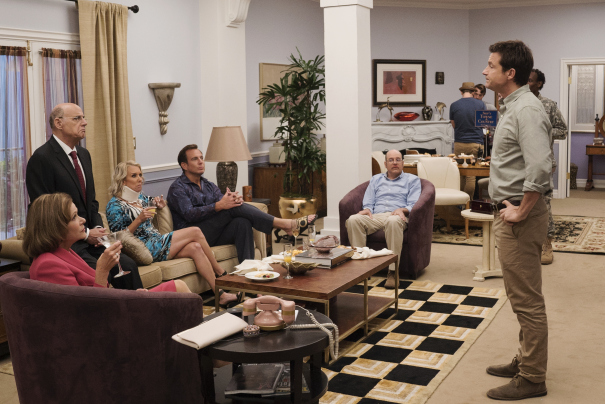
So Hurwitz’s serenity might have a little to do with the mounting feeling, in the last few weeks of production, that he’d managed to pull it off. The episodes are strong, the gags are sharp and the cast is right on point.
But we meet again a few weeks before Netflix announces the fifth season’s premiere date, and a lot has changed by the time we sit down to properly discuss the show. Jeffrey Tambor, who was fired from Amazon Studios’ Transparent after sexual harassment allegations and an internal investigation, copped to an incident of verbal abuse on the Arrested set—what he described as a “blowup” directed at co-star Jessica Walter. In a New York Times interview with the cast, Walter, through tears, discussed how it made her feel. The male cast members who tried to arbitrate were accused of trivializing her pain.
Hurwitz is acutely aware of the fractures forming so publicly within his on-screen family. Our conversation is, at times, emotional. He’ll tell me that he lost sight of the fact these aren’t real family members, and that framing them that way can be dangerous. But what’s clear from the mood of our cover shoot—which features both Tambor and Walter—is that there are complex, deep bonds within this ensemble that are tough to break. And as this season becomes the first to debut during the Trump era—after a narrative in Season 4, long before Trump’s Presidential run, in which the Bluth Company sets out to build a wall on the Mexican-American border—what remains undeniable is the potency of this most complex of comedy series.
You started on Arrested Development in the Bush era, and it’s hard not to see the Bluth family as an exaggerated version of a kind of privileged ignorance. Season 5 is the show’s first in the Trump era. How do you separate fact from comic fiction?
That was a challenge. First of all, when we had come up with the idea of the Bluths building a wall in Season 4, it wasn’t parody of the news. I love news parody, but we can’t compete with Saturday Night Live, The Daily Show and everybody else who does it.
And then the other problem that we were facing is Michael Cera’s 30, and if you really followed the timeline he would be… 30. There’s no getting around it. In the recut of Season 4 I put in some joke about George-Michael going out on a boat in 2005 and then coming back in 2013 “weathered by his trip to the sea”. His 20-minute trip to the sea.
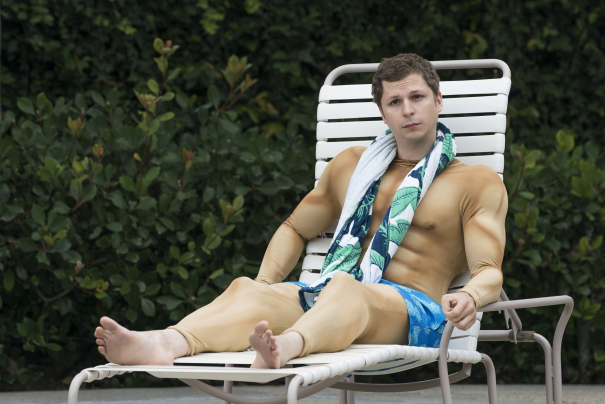
So we had this issue where this season couldn’t be set in 2017 or 2018; it wouldn’t make sense because everything’s changed. But it was sometime in 2015 when Trump came out and made his introductory bid for the presidency, and in that same breath started talking about how Mexicans are rapists and murderers and he was going to build a wall. So it seemed like that could be a good little element here.
It led me to a theme for the year. And those things tend to emerge organically. I’m always a little leery of writers who say, “I wanted to do a show that explored the balance between the artificial and the real.” No, you wanted to do this show and then after the fact you said, “Oh, it’s about this.” But we have to deal with the Trump thing, because they were building a wall, and what emerged was this idea of retreating to the safety of old ideas. It does seem like that is the fundamental difference between the left and the right. I mean there are many differences of course, but the idea of fear of the future or embrace of the future—it’s probably just a very human split among people, that some people really crave new experiences and some people want to retreat to familiar experiences.
It was kind of like that with the Bluths. The idea they all started to grow and change because their old support system had fallen away, they were failures in that world, and suddenly they were pulled back into the things that ultimately made them unhappy, but that were safer. Their desire to cheat to try and get ahead. It’s not that conscious of a thing, but it just felt like now that some time has gone by, I look at that family and they’re just Americans. Not in the Roseanne way, but they’re more like a metaphor for America. Entitled. I mean… they also have good qualities.
The Bluths? Where?
Wait, hold on a second. I’d like to strike that last comment from the record.
They must have good qualities… They’re funny. That’s their good quality.
Only to us.
Well, Michael is kind of funny. But nobody laughs at what he says, so only he knows he’s funny.
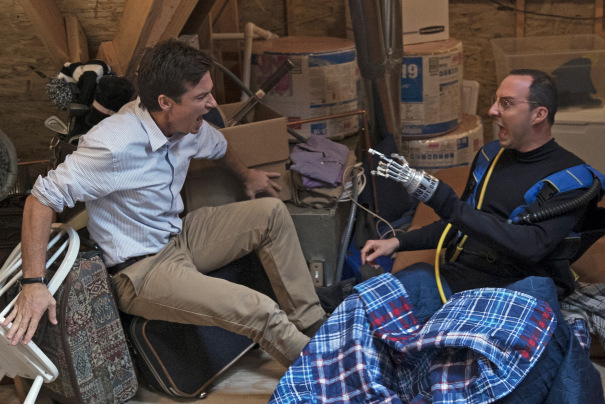
Tobias is hilarious for reasons that are completely oblivious to him.
Tobias doesn’t know. David [Cross] is so funny. They’re all so good now. I mean, they always were, but it’s more striking to me now. They’ve all matured. When I saw how that scene played out between Michael [Jason Bateman] and George-Michael in Episode 3… I love that scene. It didn’t have to be like this. They didn’t both have to turn out to be consummate, focused, concentrated actors. They were just guys that were cast in a sitcom. Those are masterful performances in comedy, and it’s hard to call something masterful because it’s either funny or it’s not. But just the subtlety of what they’re playing, they just both happen to have those gifts.
This doesn’t really apply to some of the older actors, but I think a lot of them had this great education by being with each other. Like Alia [Shawkat] and Michael Cera, maybe they would have been just as talented, but they were raised by these consummate, comic actors that committed to the comedy at a time when that wasn’t happening.
They all come from such different approaches, too.
I know. They are different. I used to spend a lot of energy pulling them all to the same spot. At least at the start of the show, where everybody would underplay, underplay, underplay, and then we would get to these absurd places. But that is less of what I do now because the characters are them. In television that often happens, where you start off leading the way with the characters and very soon you’re following. But it is interesting.
David Cross is perfectly placed as not a Bluth family member. He feels like an outsider, like he’s coming from a different place. Again, that too is happenstance. The Russo brothers used to say to me, “You gotta get a ringer, you gotta get a ringer.” And I didn’t really even know the term ringer. They meant a comedy guy who’s always going to deliver. This is before we knew we were going to have nine of them.
So I called David Cross, who had read the script, and he said, “What do you have in mind for me?” I said, “Really, whatever you want to play.” And as I said it—this was my inexperience—I was like, what if he says Michael? I was so worried about it for a day. He’s going to say, “I want the lead,” and I have to say, “They’re not going to let you play the lead.” But he didn’t; he came back and he said two things. He was like, “I think I’d like to play Tobias.” And he said, “I think he should have a mustache.”
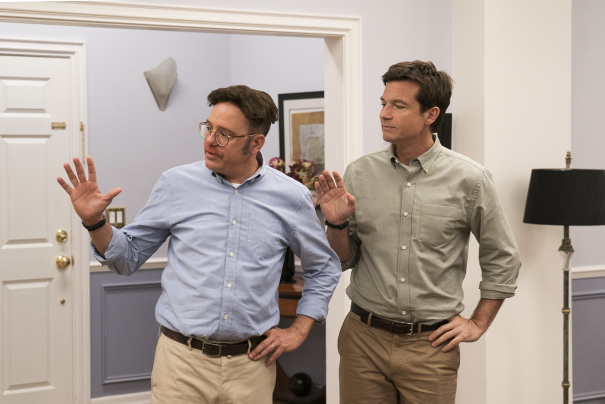
Actually, the mustache thing might have been later. Yes, the mustache thing was later. Here’s the funny thing about the mustache. He never went through any audition process or anything. When he said he wanted to be Tobias, great, he got the part; FOX signed off on it, which was really good. So I never talked to him. And meanwhile the rest of the cast had to go through this audition process, work together to do these kind of chemistry reads together, in different combinations.
But David showed up probably the night before we were shooting the first scene, or his first scene. And he called and said, “Hey, I thought maybe we could talk about the character.” I didn’t really have much to say about him. “He shows up, he says these lines.” But David didn’t have much to say either. He said, “Well, I have one thought. I think he should have a mustache.” Basically, that was all the character work we did.
Level with me. Is Tobias gay?
Hmm… No… I don’t think he’s gay. For us, the more interesting thing was giving Gob the gay storyline, because it’s usually the macho, overcompensating guy who turns out to be gay. It isn’t the guy who feels free to not cover up his Freudian slips.
I don’t think he’s gay. I don’t think he is. There’s very little evidence for it. We do have all these clues. I remember in Season 4 there were lines about his ‘nightly drives’. “There’s this acting clinic I came across recently on one of my nightly drives.” What does he mean? Maybe he’s just driving around.
I don’t think he’s gay, he’s just in his head. He’s not self-involved, but…
He’s in a reverie.
Yeah. He’s not at all concerned with appearances. It’s a great quality. It speaks to a confidence nobody else really has. And the fact he’s acting… I don’t think that level of self-delusion is such a crazy idea. I think that really exists. It’s really such a shame. Why does he want to be an actor?
You’re still wrestling with these questions, five seasons in?
I know. Is he gay? Why does he want to be an actor? It’s funny, just recently I was asking myself why Gob wants to be a magician. I was really reflecting on that. I realized, they’re all choosing things that don’t require showing up. Even Lindsay [Portia de Rossi], with her social justice thing, she doesn’t really have to show up. Actors, you’ve got an excuse for not working. Gob’s just got this expensive hobby. He just likes applause.
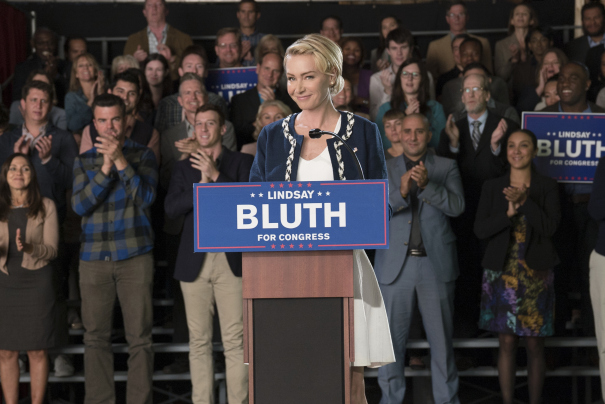
But the magician thing used to be more central to it. It used to be more a metaphor of a fraudulent personality, because magic is so funny that way. It’s cloaked in this depth and mystery but really it’s just: get up in the morning, strap a bag of milk to your stomach, put the tube through your shirt, put a magnet on your knee, get to the restaurant early, and put a six of diamonds in a salt shaker. There’s nothing mysterious about it.
I got into magic when I was a kid and then I had this regression when I was in my 30s. I had this big surgery and I started ordering magic tricks online. But I would fall for it every time. It would say, “Take a ring from a spectator, put it under a silk. It shows up on another spectator across the room. It’s the exact same ring, only one ring is used. 26 dollars.” I’d think, I’m doing it. I’m getting it. 26 dollars? Only one ring is used? I have to know. And then the envelope would show up and you would just feel two rings in the envelope. Of course it’s two rings. Like, what did I expect, magic?
It’s an affliction of that entire generation of the Bluths. Michael ostensibly wants to be a good father—the opposite of not showing up—but actually he’s terrible at it.
It’s too much about his identity. I mean I think he really does adore his son, but it’s just too much wrapped up in his identity. This happens to a lot of parents, and that’s why Season 4 was so tragic because it is the thing that above all he holds up as being the quality that makes him unique and morally superior. It allows him to put up with the rest of his family because he has this smugness in knowing that he’s more enlightened.
George-Michael is interesting too—and this is how long ago we did the pilot—because it’s almost a stock character. A lot of them are almost stock characters now. And maybe they always were; maybe they were always commedia dell’arte. But when I was going through the pitch and I was talking about the characters, I got to his character, and I said, “There are no distinguishing features. He’s self-conscious, he’s fairly buttoned-down, he’s not a wise guy, he’s a little nervous.” And I remember somebody—although I don’t remember who it was—said, “Boy, that doesn’t sound like a FOX kid.” Isn’t that funny?
This was a network exec?
Yeah. Like a FOX kid was maybe more like Bart Simpson at the time. You know, “We’re the radical network and we don’t play by the rules, and we have these smart aleck characters, and this isn’t a smart aleck character.”
Well now—I mean within a short time—people were tired of smart aleck characters and the kind of nerdy self-conscious guy was much more a staple in entertainment. But I will never forget that. I really had no defense for it. And I said, “You know, he’s like me. He’s like I was.” I said, “I’ve known more people that are self-conscious and I think it’s funny to be self-conscious.” I mean, they were probably right in that had we had a heartthrob in there that was cocky, maybe they’d be selling plush toys of him.
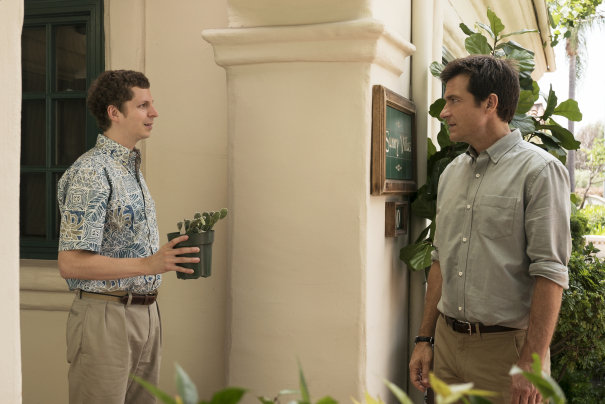
It’s always tricky because it’s a creative field, but it is first and primarily, especially at that time, about a wide audience. It’s about a mass audience. And that’s why this was such an outlier. I look back on it and think, wow, I can’t believe this all happened.
You did well to last three seasons on FOX.
Well, they wanted the show off the air because it was very clear right away that it wasn’t making money. It only had probably 12 million viewers a night. That would have made it one of the top two shows right now, but the world is different.
And then we quickly got press and we got an early nomination. I guess it was the Golden Globe or something. So it was suddenly like, “Oh, now we can’t cancel it.” I think Rupert [Murdoch] was even on the record saying, “Love the show, but it’s an HBO show. It’s not a FOX show.” And they were kind of saddled with it.
Why did it end up at FOX in the first place?
It’s funny, we pitched it everywhere and NBC was interested. We didn’t pitch it to any of the cable channels. 20th Century Fox was producing it because I made it through Imagine, which is Ron Howard’s company and it was underwritten by 20th. So they had a predisposition to want to sell it to themselves if they were going to do anything with it. At the time I really wanted it to go to NBC because I thought if you were able to do this at NBC, that would be something. I can’t even remember why. But it felt like: FOX does experimental shows, NBC doesn’t.
I don’t know that that’s really true, because they did Seinfeld. But it really did feel like this would be the first of those shows on NBC, where they really do something out of the ordinary.
But I think it also wouldn’t have gotten on the air at NBC. And so I ended up having a meeting with the guy who was running the Fox Broadcasting Company, Channel 11 out here. He said, “I want to compel you to do it here. I don’t want you to do it at NBC. I believe in the show.” So we decided that was for the best. And I think it was.
You never thought about cable?
It wasn’t really up to me. The one part of it that I was pushing for, and even continued to push for as we brought back Season 4, is I wanted an audience that doesn’t have HBO to get it. There was something more democratic about it. I felt like young people were going to like this. Even when we had the chance to go to Showtime at one point, and my good friend and former executive producer of the show, David Nevins, was running it at the time. It still felt like this was for young people. They don’t have Showtime. Maybe when they go home over college break they’ll watch it at their parents’ house…
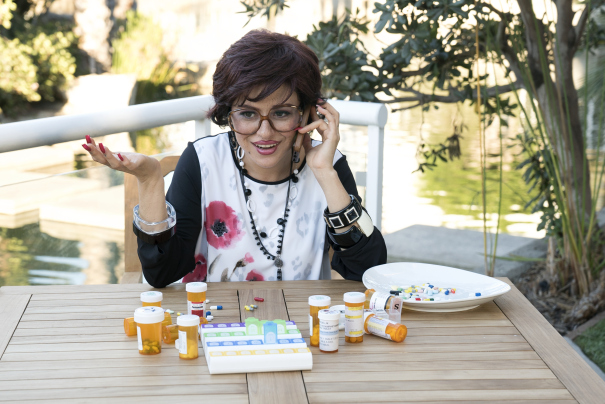
What I was always proud of was that we were giving a subtle show to people who didn’t have cable. But now everybody has something—everybody has Hulu or Netflix—so that distinction just doesn’t exist anymore.
Even though you never find out how many people are watching.
The one clue I got was one time when Ted Sarandos said to me, “Hey, are they ever going to release the DVD of Season 4?” This was years ago. And I said, “They did.” “They did? With no promotions?” “No, of course not.” He said, “Do they know how popular the show is?” It was like, “Would you mind telling them?”
I mean, I don’t know if that’s still the case, but for sure the one thing it has going for it is rewatchability. There’s just enough still to catch.
Netflix and the show made a decision to stick by Jeffrey Tambor in the face of sexual harassment accusations on the Transparent set. Do you still feel that was the right call?
I do. Jeffrey refutes those claims, Amazon hasn’t shared details with us, and we’ve never had any sexual harassment allegations of any type on our show—a point that Jessica Walter has made as well. To be clear: in saying this I’m not defending sexual harassment. It is and should be a job-terminating offense. I just don’t have any information on whatever happened there. Nor do I have any evidence of him ever sexually harassing anyone in the 20 years, off and on, that I’ve worked with him. So, right or wrong, sticking with Jeffrey wasn’t really a decision I made at all. And while it doesn’t rise to the level of abuse of power that sexual harassment does, becoming a moral adjudicator of who works and who doesn’t without evidence is also an abuse of power—albeit a lesser one—that I would hope I also wouldn’t intentionally or inadvertently commit.
Here’s what I do have experience of with Jeffrey. He can be difficult. He’s not a rager, although clearly there was an outburst to Jessica. But outside of that and in general he is an emotional guy who either likes his performance or doesn’t like his performance, and he’s outspoken about it all, and that’s going to be a problem when dealing with people. I do think he’ll learn from this, that there’s cause and effect in the world, and—this goes for all of us, myself completely included—if you put yourself first and other people don’t feel welcomed by you, you’re asking for trouble. But he really cares about the quality of his work, as does the rest of this cast, as do I about mine, and all of us struggle to preserve that while trying to play well with others.
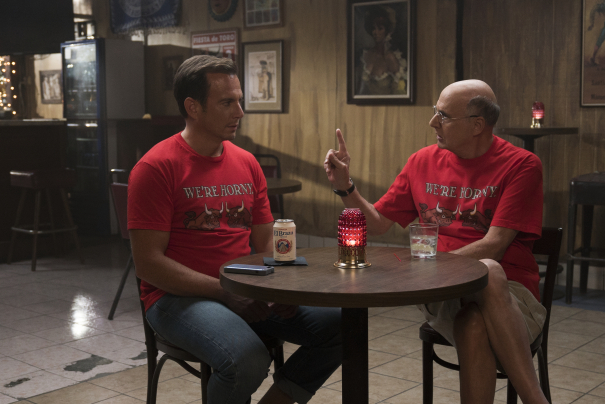
I don’t know what happened on the Amazon set, but I would not be surprised if this kind of behavior was a problem for him on that set. Well, he’s admitted as much to me. I guess that’s why I wouldn’t be surprised. For the record I think I acted surprised when he told me. But I wasn’t surprised. Does that surprise you?
What I’ll say about Jeffrey is he’s always impressed me as someone who was willing to grow. I’ve seen it. In general he’s a guy who’s open to learning and reading and changing, and seeking a spiritual path that’s uncommon in somebody over a certain age. I do think he’ll work to learn and improve himself from this whole experience.
On the eve of your Season 5 launch, there was an accusation—which Jeffrey had first copped to in an interview—that he had been verbally abusive to Jessica Walter.
Listen, I’m guilty of not realizing how deeply upsetting that was for Jessica. I heard about it and saw part of it in the dailies, although the part I saw didn’t seem that—I don’t know—momentous. But fights and outbursts always start with things that are smaller. It was something minor, like he was doing a speech and Jessica wanted to redo something in her speech. She’s a perfectionist, which I have a horrible case of myself, and he’s sort of loose with it, finds his way back if he gets off course within the speech, for instance… And she was resetting and he got upset and was like, “Oh, come on! You always do this!” He continued for a bit and she apologized. “I’m sorry, Jeffrey, I’m sorry.” But he continued and then walked off—the set apparently, but he walked out of frame.
It felt like your jaw would not have dropped if you saw this daily. On the set itself it must have been incredibly uncomfortable, because we’re all sensitive to that kind of interruption. But apparently he came back and continued some more, and I defer to Jeffrey and Jessica’s depiction of what happened after, which I think they’re in accord about.
Jessica did let me know she was upset about it afterward—and then Jeffrey apologized and Jessica was really gracious about that—and, you know, was professional in that she didn’t let on that it was still upsetting and present for her. She’s a total pro and the set went back to functioning as well as it always has due to her professionalism, and that’s to her immense credit.
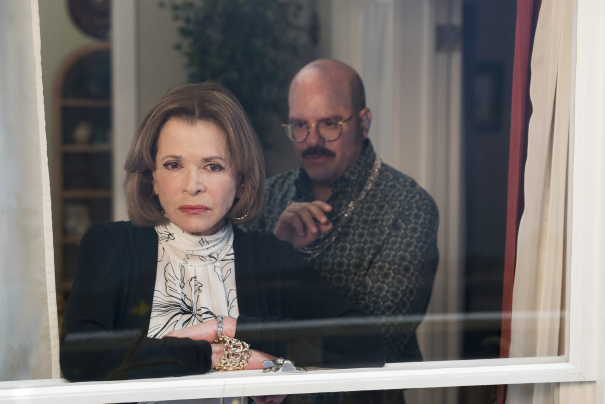
I realize now I clearly misread the situation, given how Jessica has revealed she felt about it—there was more to it than I realized, and it’s not my place to opine about what I believe was the weight of it. I misinterpreted what I understood to have played out, and more importantly the depth of Jessica’s pain about it. I feel so bad about that. I feel bad because I love these people—I feel bad for very personal reasons. And because I had been viewing this through the lens of a family member who assumed that any discord—regardless of who was upset with who—existed within the context of a family that cared about each other, and that was a mistake. Of course we were at work, and we’re not really related. That’s why we have different last names! And I wish I’d known, or made a greater effort to know, the pain that it caused.
You ended up shooting much of Season 4 and Season 5 around cast availability, and using green screen and doubles to put parts of scenes together. But was it more than availability? Did they not want to work with one another?
Oh, no, not at all. These guys seem to love working together—the Jeffrey/Jessica situation we just talked about notwithstanding. But really, when we did the big group scenes in Season 4 I think there were only two scenes we had everyone in town on the same day for and it was, like, our best experience. Everyone was just so enthused. I remember Will [Arnett] saying, just before we were going to read, “Mitch! Look at this.” Like he was saying, “Say something dude—this is a big deal!” And I was embarrassed to have not addressed it. I think I said, “This is an amazing gift. This didn’t have to happen. The show ended six years ago,” and at that time nothing like that had really happened. And I think I said, “How lucky we are all healthy and we all still look like ourselves.” You have to remember, this is back when David Cross still had all his teeth.
No, but it was a total joy, and everyone felt it, and I think still feels it. The green screens were truly because… Well, on a typical TV show, job one is, all the actors sign contracts and have to be there. On this they hadn’t kept, you know, 15 weeks in their schedules free. They all had other jobs. I felt like it was amazing we even had two scenes where everyone was there.
It seemed like everyone was happy to be together at the premiere. After all the Jeffrey Tambor news, did you get the sense that there were lingering bad feelings underneath it?
It didn’t appear that way to me. I mean, I would’ve said, “Of course not… it was great,” before Jessica expressed her feelings. I’m sure the night was challenging for Jeffrey in ways that weren’t superficially evident. But sometimes that can coexist with a happy reunion, and it was a fun night. These people all really care about each other. Jessica and Jeffrey have shared as much. And it was a really fun and special night. The show was so well-received, which was what everybody’s work was in service of. Everyone got laughs. And in the right places.
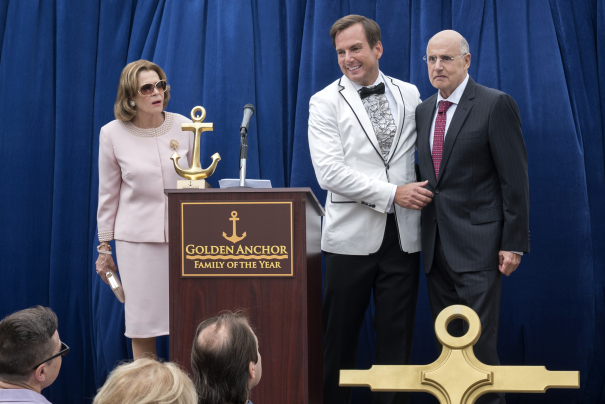
How has your relationship with this cast developed over the years? Do you immediately fall into old patterns?
Oh, definitely. Too much so. It’s like going home to a family reunion, which is a wonderful thing, but you tend to fall into old behavior. I mean, at least I did. I started off really doing things the way I’d always done them, which meant last minute scripts and changes, et cetera. But for so many reasons—many to do with the fact that guest cast availability, and even some main cast availability, changed—I was really playing catchup in our storytelling, and as a result I just wasn’t on stage with them the way I usually am. They were getting script changes without context—scenes that they didn’t have time to prep for. It was hard for them. And no doubt even more aggravating for them than they let on when they shared that with me.
It was actually an amazing kind of intervention they had for me at one point! And they did the right thing. This wasn’t like the old show, in that it wasn’t a show where characters had four lines per scene and we were just in service of the complexity of the plot we’re jamming into a 20-minute episode. These were longer, more complex scenes and they needed to have their process given as much importance as mine.
That’s what it really was. I was putting my process ahead of theirs, selfishly, and feeling like I had the right to because I’m under the gun and trying so hard, and they were saying, “No, we want to help, we want to try hard.” I’m fortunate to be with these people who are really, really good and whose process matters. It matters to me. It does matter to me. But I didn’t see how I was interfering with it.
Did you figure it out?
No, was I supposed to?
No, of course. Because they were very loving about it. I benefitted from that immensely. But it was embarrassing to realize that, having done this for as long as I have, I still have a lot to learn. It was embarrassing but valuable. I was making my own job harder too. That’s what Jason said to me. He said, “Leave it to us. We can take the ball a little further. We’re good. You don’t have to do what you did in the first year.” He was absolutely right. It was like, “Take the help.” I had been underwater and it was like, “Yeah, why don’t I take the help?” Taking help is hard.
That’s Jason by the way. He’s always this force for harmony. He’s Michael Bluth. It’s extraordinary that someone that talented is also that kind and that consistently generous. Offering to help where others might just complain. They’re really all wonderful people, which is just a coincidence. We all met a long time ago. Some of them were teenagers! And they’re all so talented and such good people.
You faced a lot of criticism about Season 4. Its structure was different, and people balked. I didn’t realize this at the time, because I loved it.
Yeah, you were the one. No, I loved it too, by the way. It got positioned in the press, saying, “Even Hurwitz thought it wasn’t his best work.” Well, actually I did think it was my best work, but I did acknowledge that it was and it wasn’t. The other thing that was interesting about it is that some articles will say “so-so reception”. But it wasn’t so-so. It was, “This is great,” or, “This is horrible.” And even that is what you hope for. I mean, you don’t hope for, “This is horrible,” but you do hope to do something that’s novel enough at a certain point in your career that people have strong reactions to it.
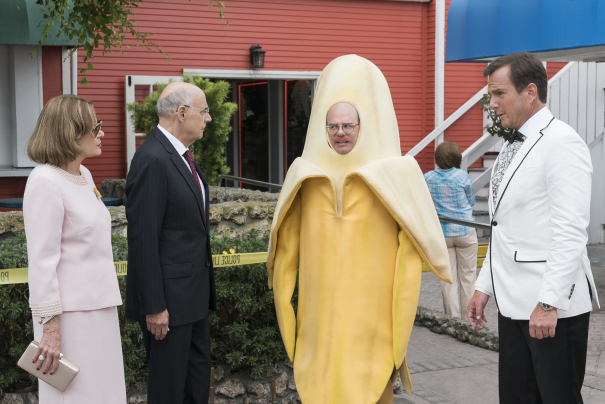
It felt to me like the first show that was built with an idea about how streaming audiences were going to consume it.
That was the goal. I felt like I did when we did the show for FOX. When I did the show for FOX, it was, “What do I actually want to see?” This is kind of a cliché, but what rules can I do away with in this world? And what rules do I not do away with?
That show is very traditional in a certain sense. Guy in the middle, act break, where the issue is, “Oh no, now what do we do?” I didn’t throw that stuff out. But there were a lot of other things like, “OK, let me call forward, let me plant things, let me know what’s going to happen at the end of the season and build to it,” which was audacious because we didn’t know if we’d have an end to the season.
And when this started at Netflix, there were two things that inspired that. One was that I was just going to make them little webisodes about each character. And it really is what I pitched to Ted Sarandos. The plan was, we were going to make the movie, but the movie was going to take a year and a half. And then immediately, all of this press love came out about the show. “It’s back, it’s back!” It was really so well-received that I thought, “Oh no! I’ve only got the actors for one week each”—and we ended up getting more than that—but it was sort of designed out of that; how do I make the most of it?
But it was also thinking, OK, what would be interesting on Netflix when you can jump around? It became more fun for me. The other way to say that is, what was fun about Arrested the first time around was that there was a lot that was going to be hard about it, but the fun stuff was, “Oh, we could do this, we could actually put this hint in there.”
With Season 4, there was so much work that went into these ideas that I didn’t even know would get a laugh. There was something about the puzzle of it, like, what if we put Michael at a place people confuse for an MRI lab? Orange County Imagine, and it looks just like Orange County Imaging, which was just lucky. So many of these jokes were just luck, just writing it on the board. “Oh, it looks like Imaging.” So then it became, “How can we get George Sr. to show up at Orange County Imaging, and Michael thinks he’s there to apologize, but later, we find out, no, he’s getting an MRI?” There’s literally nowhere to laugh at that. It’s adding a degree of difficulty that no one is asking for.
What’s trippy right now is that all the rules have been broken. The fun of breaking rules isn’t as prominent because it isn’t as central to the process. You don’t have to bleep that joke, you can let them curse, because it’s Netflix. Can we pretend we can’t curse? We have to have some rules so that we have rules to break.
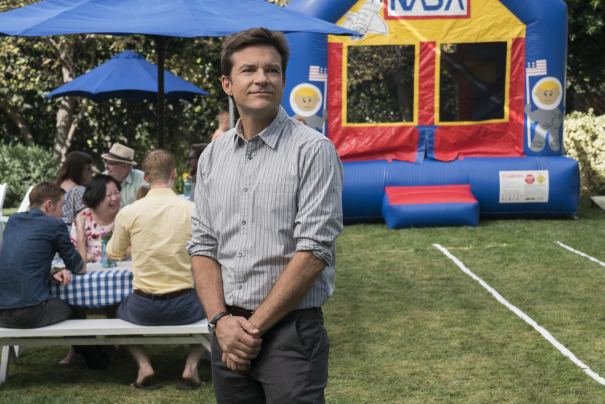
Does that mean you’re reaching the end with Arrested?
Well, I actually had big ambitions this year. I’m actually sort of heartbroken about all the things I didn’t do. We had a short time to shoot it in, and it came up so quickly. My big plan was to have Episode 8 end with a big fundraiser for Buster [Tony Hale]. “Get Buster out of jail.” And right before the fundraiser, he’s released, so they decide, “Well, people are coming, so let’s go ahead anyway…”
The idea was to do the fundraiser as a live show. Maybe we do it in a few cities. We do a concert film where they are the characters having this fundraiser, but they do skits. It became a rally, because suddenly rallies had become in vogue. But the thing would devolve and become Who’s Afraid of Virginia Woolf? People storming off stage, and Gob getting in an actual cab, sending a cameraman with him and turning it into this three-dimensional thing. It still makes me sad to think we won’t do this, but we just didn’t have time.
But those were the kinds of things where you realized there was still room for innovation. There’s still room to break the rules.
It seems like you’ve ended up in the situation Larry David finds himself in with Curb Your Enthusiasm. Bring it back every few years once the ideas have flowed.
That would be amazing. But I always feel, “Oh, they’re not going to want to do this again.” I’ve always felt that way.
